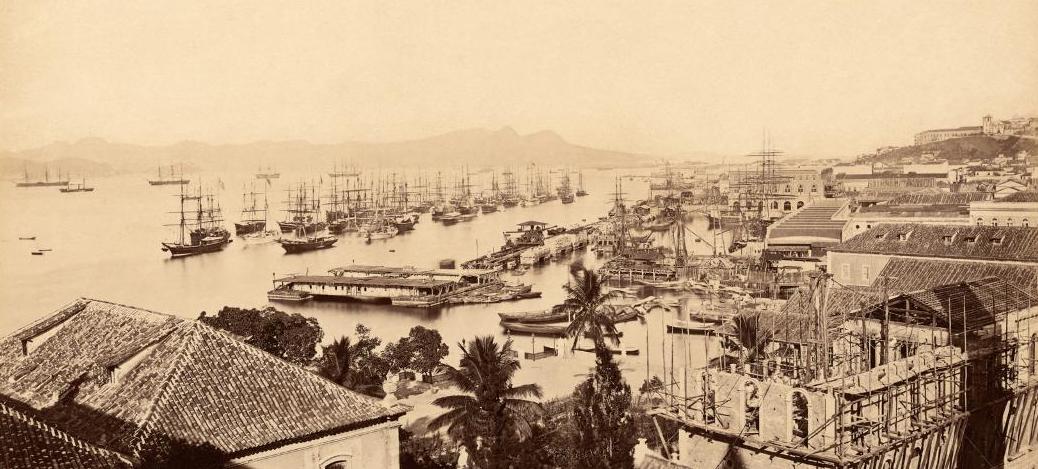Natural Disasters and Ottoman Social History
with Yaron Ayalon
hosted by Chris Gratien
Podcast Feed | iTunes | Hipcast | Soundcloud
Events such as earthquakes, floods, and epidemics provide vivid illustrations of the natural world's impact on human society, but the outcomes of natural disasters also offer a window onto aspects of social and political life in past societies. In this episode, Yaron Ayalon discusses his research on natural disasters in the Ottoman Empire and what such events tell us about Ottoman state and society during the early modern period.
Stream via Soundcloud (US / preferred)Stream via Hipcast (Turkey / Türkiye)
PARTICIPANT BIOS
 |
Yaron Ayalon is Assistant Professor of History at Ball State University. He is a social and environmental historian of the Ottoman Empire, the early modern Middle East, and Sephardic Jewry. Ayalon has published numerous articles on Ottoman and Jewish history. He received his BA in education and Middle East history from Tel Aviv University in 2002, and his Ph.D. in Near Eastern Studies from Princeton in 2009. |
 |
Chris Gratien holds a Ph.D. from Georgetown University's Department of History. His research focuses on the social and environmental history of the Ottoman Empire and the modern Middle East. He is currently preparing a monograph about the environmental history of the Cilicia region from the 1850s until the 1950s. |
CREDITS
Episode No. 226
Release Date: 25 February 2016
Recording Location: Middle East Studies Association 2016 Meeting in Denver, CO
Editing and production by Chris Gratien
Sound excerpts: Istanbul'dan Ayva Gelir Nar Gelir - Azize Tozem and Sari Recep; Harmandali - Recep Efendi, Cemal Efendi
Image "1556 Istanbul Earthquake by Herman Gall" via Wikipedia
Bibliography courtesy of Yaron Ayalon
SELECT BIBLIOGRAPHY
| Ayalon, Yaron. Natural Disasters in the Ottoman Empire: Plague, Famine, and Other Misfortunes (Cambridge University Press, 2014) |
Ayalon, Yaron. Natural Disasters in the Ottoman Empire: Plague, Famine, and Other Misfortunes. 2014.
_____. "Ottoman urban privacy in light of disaster recovery," IJMES 43 (2011), 3:513-28.
Baer, Marc. Honored by the Glory of Islam: Conversion and Conquest in Ottoman Europe. Oxford: Oxford University Press, 2008.
Dols, Michael. The Black Death in the Middle East. Princeton, NJ: Princeton University Press, 1977.
Gallagher, Nancy. Medicine and Power in Tunisia, 1780-1900. Cambridge: Cambridge University Press, 1984.
Jennings, Ronald. "Plague in Trabzon and reactions to it according to local judicial registers," in Heath Lowry and Donald Quataert, eds. Humanist and Scholar: Essays in Honor of Andreas Tietze. Istanbul: Isis, 1993, 27-36.
Marcus, Abraham. The Middle East on the Eve of Modernity: Aleppo in the Eighteenth Century. New York: Columbia University Press, 1989.
Mikhail, Alan. Nature and Empire in Ottoman Egypt: An Environmental History. Cambridge: Cambridge University Press, 2011
Stearns, Justin. Infectious Ideas: Contagion in Premodern Islamic and Christian Thought in the Westem Mediterranean. Baltimore: Johns Hopkins University Press, 2011.
Varlık, Nükhet. Plague and Empire in the Early Modern Mediterranean World: The Ottoman Experience, 1347-1600. New York: Cambridge University Press. 2015
White, Sam. The Climate of Rebellion in the Early Modern Ottoman Empire. New York: Cambridge University Press, 2011.
Zachariadou, Elisavet A. Natural Disasters in the Ottoman Empire: Halcyon Days in Crete III : a Symposium Held in Rethymnon 10-12 January 1997. Rethymnon: Crete University Press, 1999.










Comments
Post a Comment
Due to an overwhelming amount of spam, we no longer read comments submitted to the blog.